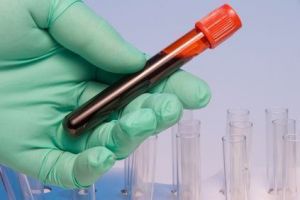
Blood & Urine Tests for Dogs
Disclaimer: I am not a veterinarian, nor do I have any formal training in any medical field. The information presented here is not meant to replace your vet's advice or prescribed medications, but only to suggest additional options to explore, based on your dog's condition.
Understanding Test Results
Websites that explain the meaning of blood tests:
- North Western Laboratories Test Interpretation
- Laboratory Findings -- click on individual tests for details (just click OK on the "Not Found" popup, page will still load)
- WSU College of Veterinary Medicine: What Do Those Lab Tests Mean?
- Understanding Blood Work: The Biochemical Profile
- Understanding Blood Work: The Complete Blood Count (CBC)
- Understanding Common Blood Tests
- Blood Work: CBC and Chemistry Panel
- Chemistry Panels & Tests
- Complete Blood Count (CBC)
- Interpretation of Lab Test Profiles
Very technical but lots of good information:
- Diagnostic Directory (scroll left panel horizontally to get info on various tests, including blood, urinalysis, fecal and more)
- Detailed Information on Blood Chemisry and Hemavtology (click on the individual tests or groups of tests for more information)
Normal blood work when dog is sick:
- What to do when blood work is normal in a sick dog Information on additional diagnostic tests.
Puppies:
See the following for information on different normal values for puppies compared to adult dogs:
- http://personal.palouse.net/valeska/puppy-serum-chem-values.htm
- http://personal.palouse.net/valeska/puppy-bloodwork-values.htm
Urinalysis:
- Urinalysis: Testing a Urine Sample
- Urinalysis Information on urinalysis results.
- Routine Urinalysis (click on the individual tests or groups of tests for more information)
- Urinalysis Dipstick Interpretation
- Proteinuria: An Important Clue to Kidney Disease Information on the meaning of protein in the urine
Tests for Specific Diseases:
- Bile Acids
- Demystifying the Bil Acid Test using Shaili's Results
- Common Laboratory Tests in Liver Diseases (human oriented)
- Gastrointestinal Function Tests in Dogs and Cats Tests for pancreatitis, EPI, PLE and other gastrointestinal diseases
- Diagnosing Liver Disease in Dogs: What do the Tests Really Mean?
- Testing for Kidney Disease Good overview on urinalysis in relation to kidney disease and blood work ]
- Polydipsic Pooch Case study of a dog with polydipsia (excessive drinking), talks about all the possible causes
Effect of diet on test results
A study comparing the blood work of raw-fed and kibble-fed dogs found that the raw-fed dogs had higher average BUN and PCV (hematocrit, a measure of red blood cells) values. Hemoglobin, MCH, MCV and MCHC (all measures of red blood cells), total protein, albumin, creatinine, BUN/creatinine ratio, sodium, osmolality, and magnesium were also statistically higher, and total leukocyte, neutrophil, and lymphocyte counts (all measures of white blood cells), phosphorus, and glucose were statistically lower according to a detailed analysis. Note that all values were still within normal ranges or only very slightly different; values that are well outside the normal range are always meaningful. See Issues in Nutrition by Dr. Dodds for more information (in the Raw Food Diet Study section).
Fasting (no food, but continue to give water) for at least 12 hours before the blood is drawn should eliminate most effects on blood tests that are caused by diet. This is a good idea for all dogs, as a recent meal can also cause lipemia, making blood test results less reliable (see below).
A study was also done to test whether dogs fed a high-protein diet would have microalbuminuria (albumin in the urine, which can be an early sign of kidney disease), and the results were negative; a high-protein diet does not appear to cause microalbuminuria. There is speculation that a high-protein diet may also increase urine protein-creatinine (UPC) ratio, though once again, it should remain within the normal range (up to 0.5). If this is a concern, feed your dog a lower-protein diet for a day or two before the test.
Temporary changes in test results due to high-protein diets are not a concern and do not indicate that the diet is harmful. They are the natural result of protein waste products, which the body is designed to handle, and they vary only because most dogs are still fed diets that are high in carbohydrates, which distorts the average values seen on test results. Remember that "average" is not the same as "normal" or "healthy." For more information on the safety of high-protein diets, see High-Protein Diets. I have additional information on my web site in the sections on kidney disease and liver disease.
Effects of hemolysis and lipemia
Note that mistakes in the drawing or handling of blood can cause certain test results to be skewed. Hemolysis may cause falsely elevated CPK, AST, LDH, Total Protein, Phosphorus, Potassium, BUN, Bilirubin and Bile Acids, and falsely decreased GGT, Glucose and Alkaline Phosphatase. Not fasting a dog for at least 12 hours before a blood test can cause moderately elevated BUN, as well as Lipemia, which can result in inaccurate CBC and Biochemistry analyses. Certain drugs, particularly corticosteroids, can also skew test results. See Eliminating the Confusion in Test Results and Small Mammal Clinical Pathology: The Basics for more information. It is a good idea to get a copy of all test results and look for comments about hemolysis or lipemia if there are values outside the normal range. In general, whenever you suddenly have changes in blood work, particularly if they are unrelated to current symptoms, it can be a good idea to repeat the test to be sure that the results were accurate before proceeding with further tests or making changes to diet and medications.
I regret that I no longer have much time to respond to questions. See my Contact page for more information. My name is Mary Straus and you can email me at either or
